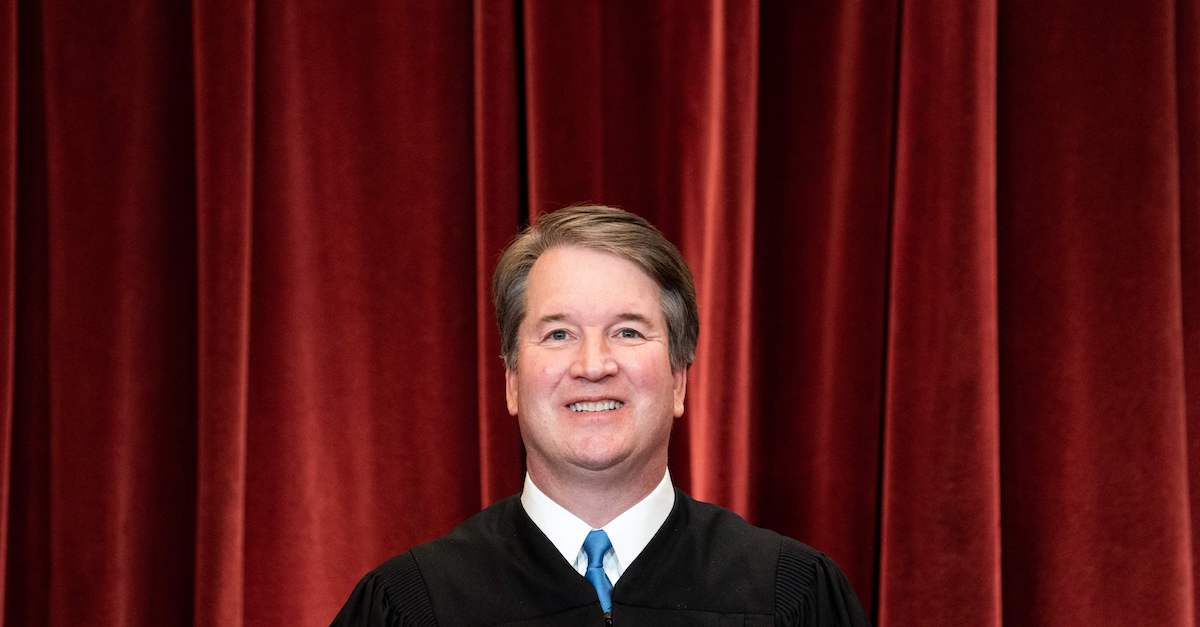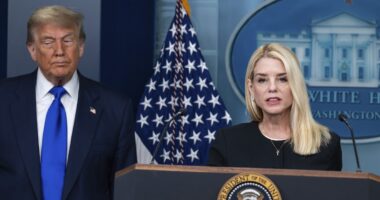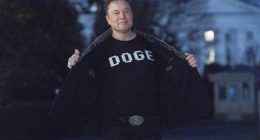
Associate Justice Brett Kavanaugh stands during a group photo of the Justices at the Supreme Court in Washington, D.C., on April 23, 2021 (ERIN SCHAFF/POOL/AFP via Getty Images).
As the U.S. Department of Justice and civil rights groups link arms in an effort to stop a commonwealth-sanctioned voter roll purge in Virginia, Supreme Court Justice Brett Kavanaugh’s understanding of a nearly 20-year-old legal doctrine has risen to the foreground.
In the Old Dominion, under the terms of Executive Order 35, election officials had begun removing “individuals who are unable to verify that they are [U.S.] citizens to the Department of Motor Vehicles” from the state’s lists of voters eligible to participate in the upcoming election.
To date, some 1,600 voters’ names have been removed. On Oct. 25, a federal district court put the kibosh on the program — by way of a preliminary injunction. The appeals process has worked quickly due to the impending (and ongoing) nature of the political process.
As Law&Crime previously reported, the issue, with lightning quickness, is now before the nation’s high court. By Monday, a controversy that began with an Oct. 7 complaint was transmogrified into an emergency stay request filed with Chief Justice John Roberts.








